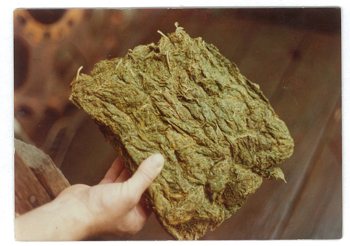
The GQ article (which runs 10,000 words) will be available online in September, but the Atavist has published Josh's 25,000 word version of the article, which is available for $2.99 now in a variety of formats, including text only version for the Amazon Kindle.
Below, an excerpt from "Coronado High."
1972
Gigs, they called them. Or scams. Or barbecues, since they would plan them while throwing steaks on the grill at sundown. Everyone would get the call—“Do you want to go to a barbecue?”—when it was time to mobilize. The missions were simple at first, with just the 12-foot Zodiac running a couple hundred pounds at a time from Rosarito to the Silver Strand beach on Coronado’s tiny isthmus. But the loads were getting bigger, and even Eddie the Otter had trouble hauling 50-pound bags through head-high waves. And everyone knew it was unwise seafaring, to say the least, to negotiate the coast in that little raft with no lights and no navigation.
Still, Lance was an adventurer; he would have made a great swashbuckler, Lou always thought, or a test pilot. When Lance reached the Silver Strand, he’d signal with a flashlight and run the Zodiac right up onto the sand—Burn up the motor, he’d say, we’ll buy a new one. They would off-load the bags, deflate the boat, and pack it all into the van. It would be over in five minutes, the most exciting five minutes they’d ever experienced: everyone holding their breath until the van was on the road, knowing as they drove away that they each had just made twice their parents’ annual salary.

It was risky, bringing more people into the operation, but it was Coronado, and everyone knew each other. “If we take care of them,” Lance said, “they’ll take care of us.” And the partners could afford to be generous. Still in their twenties, they were walking around with $50,000 in their pockets, then $100,000, then a quarter of a million dollars. “Don’t you love it,” Lance once remarked, “when life goes from black and white to Technicolor?”
Lou walked into a bank, asked for the balance of his mother’s house, and paid it off in cash. Once, when he was buying first-class tickets to Hawaii for himself and his girlfriend, it dawned on him that he had enough money to hang out there and surf for the rest of his life. And he might have, had Ed and Lance not flown over personally to retrieve their partner. “Come on, Señor Villar!” Ed said. “There’s more money to be made!”
It got to be like clockwork, enough so that sometimes Lance’s and Lou’s girlfriends would tag along on the supply runs to Tijuana. It was about this time that Lance started calling Lou “Pops,” a nickname that caught on. “What do you think, Pops?” Lance asked one evening, drinking Coronas on the beach in Baja.“I think we got a good thing going here,” Lou said. “Let’s not fuck it up.”

No comments:
Post a Comment